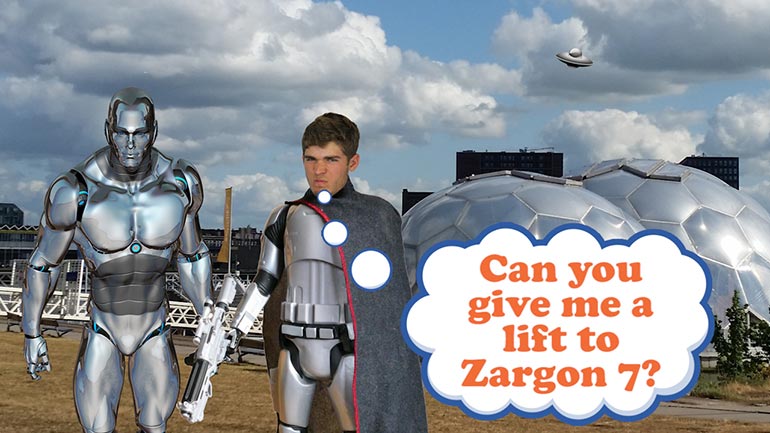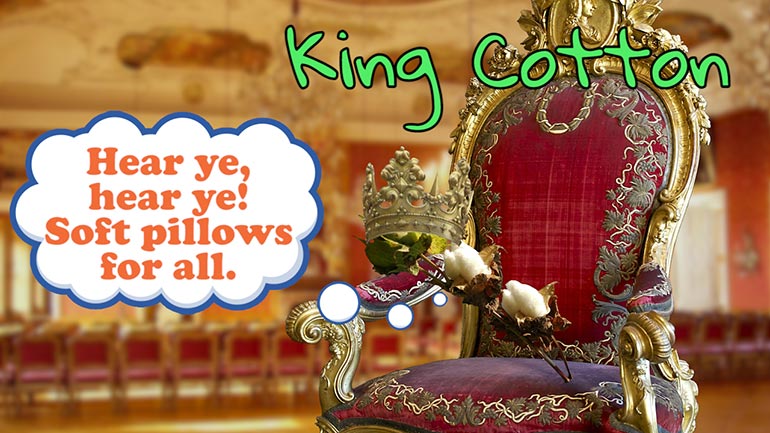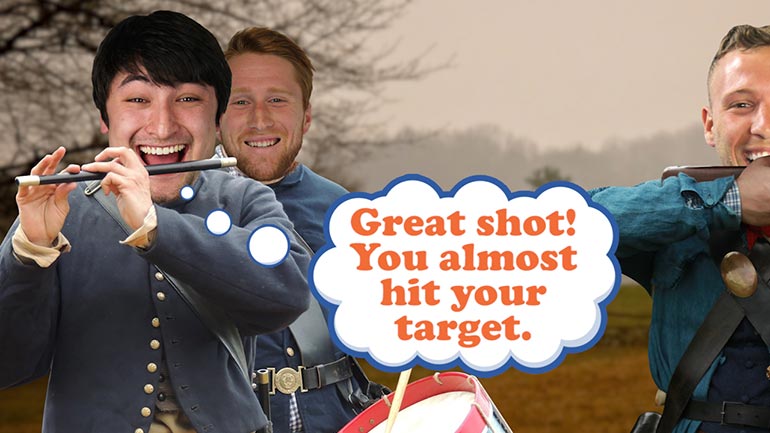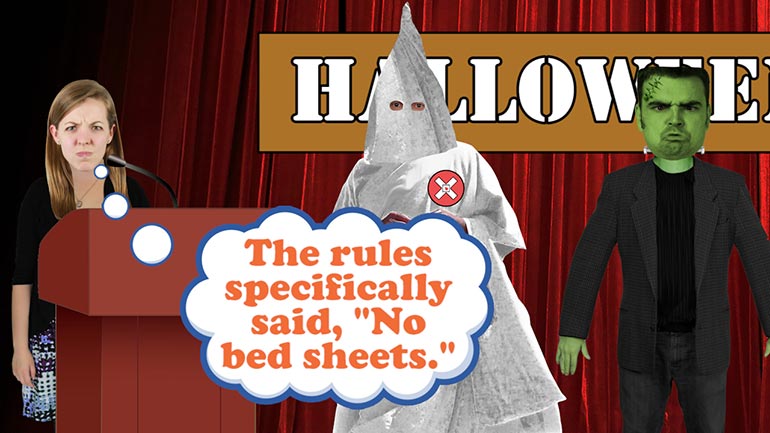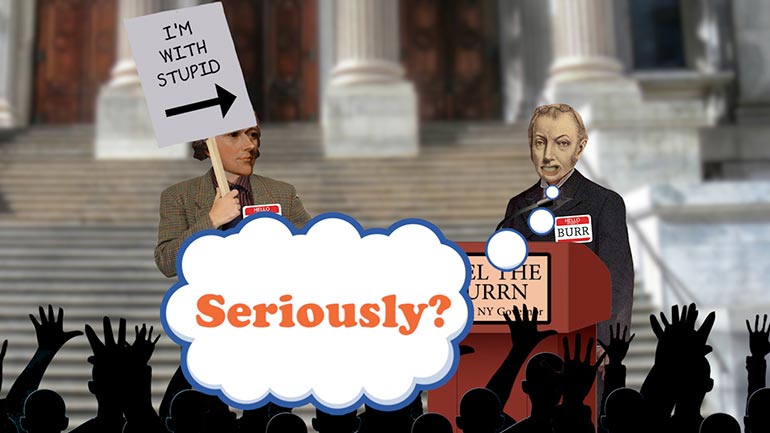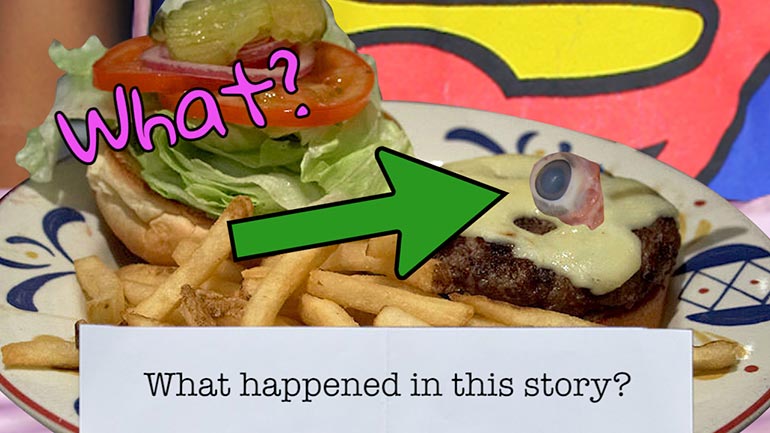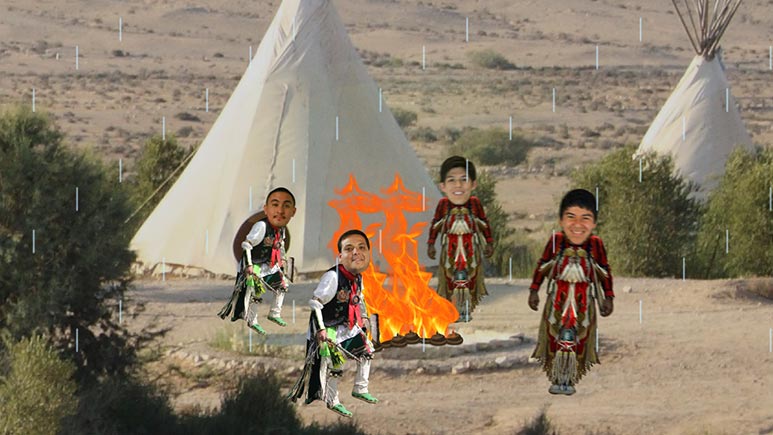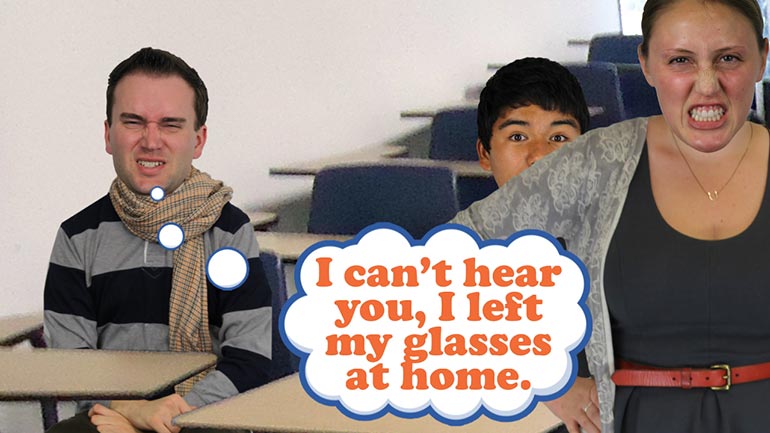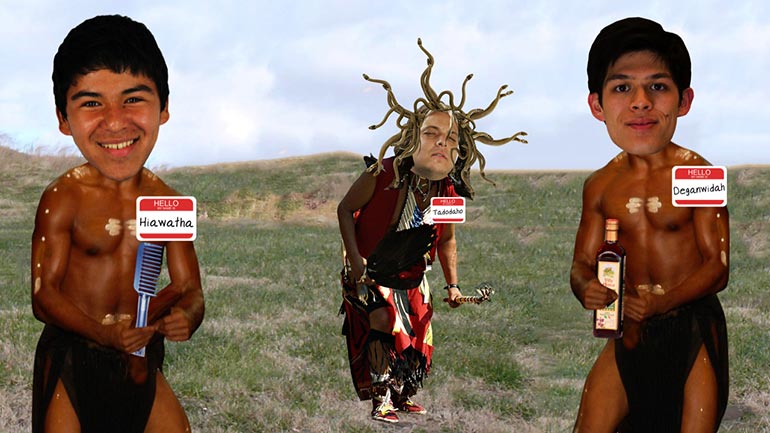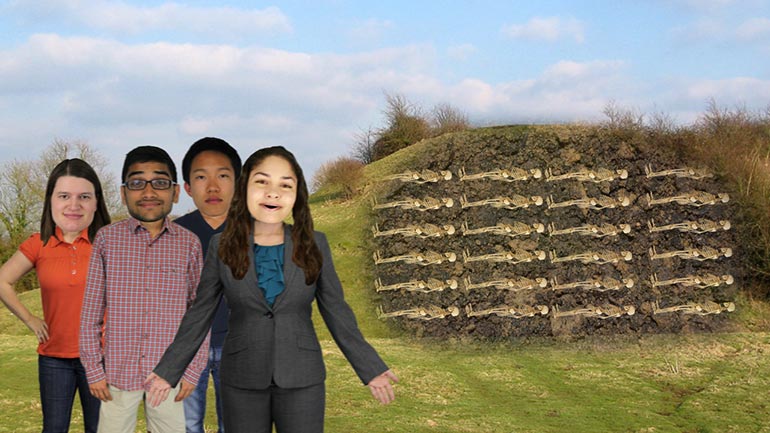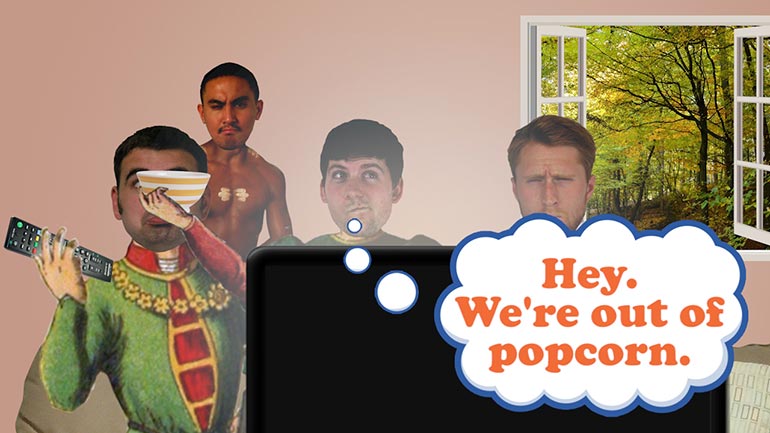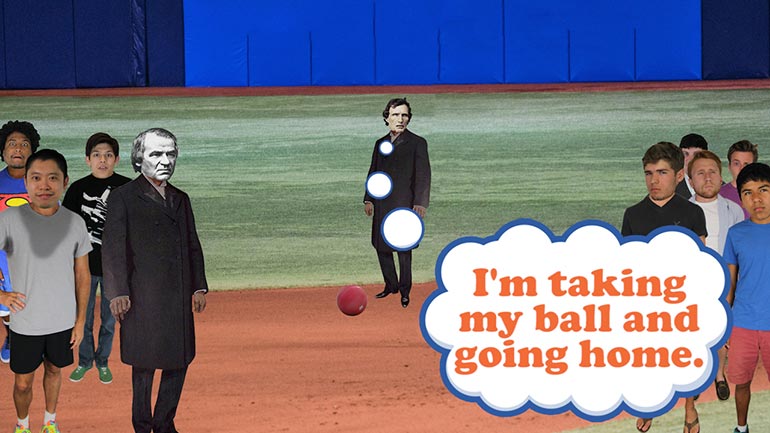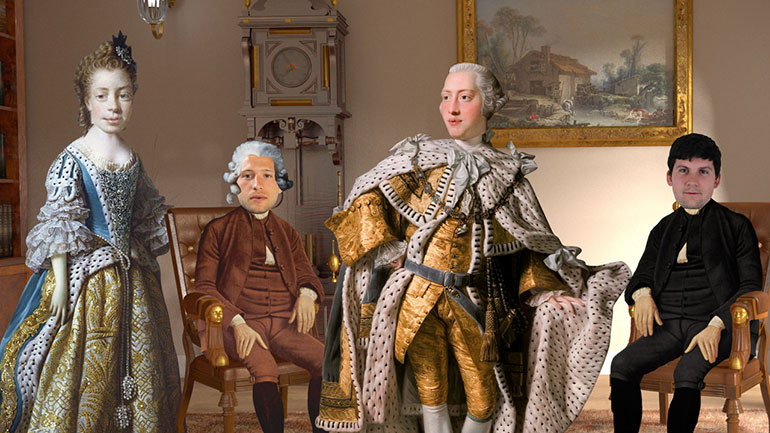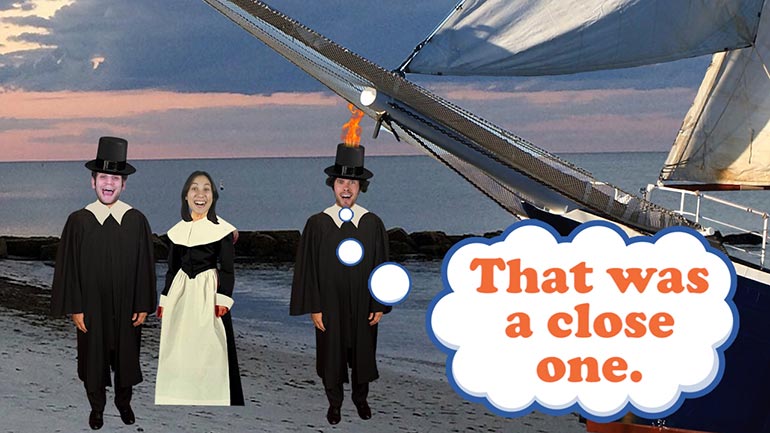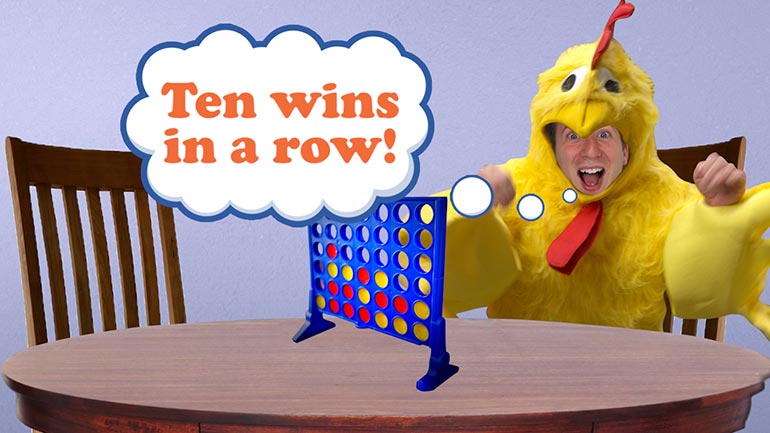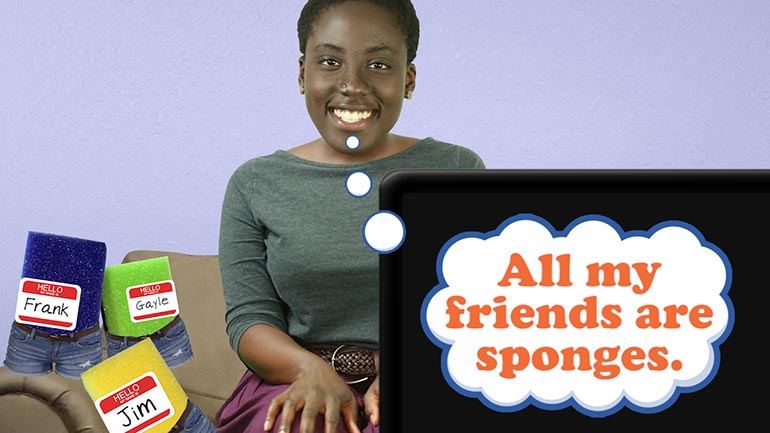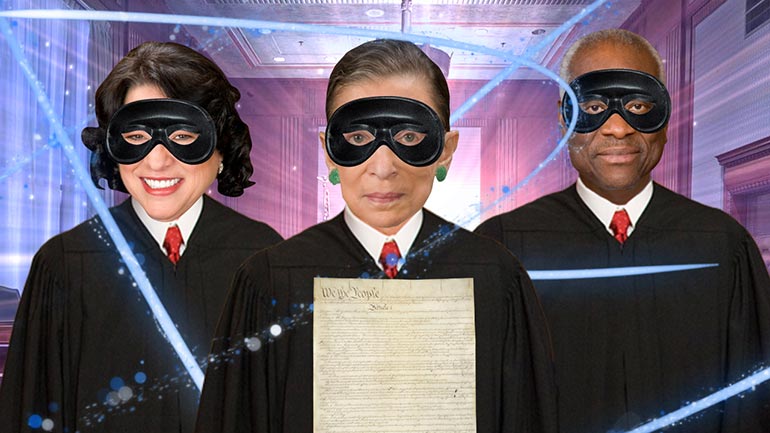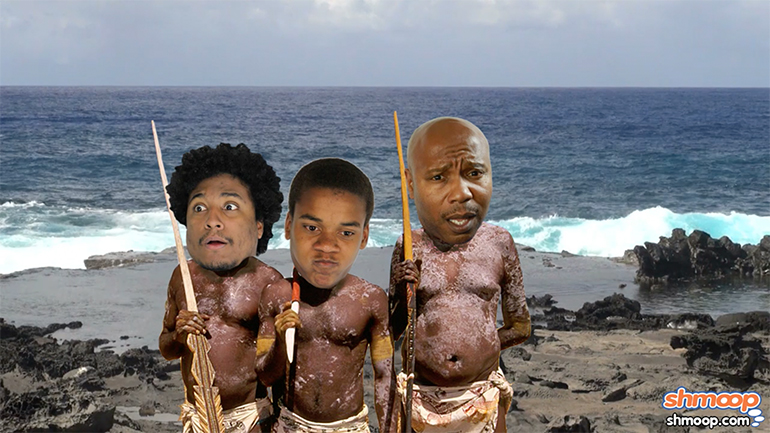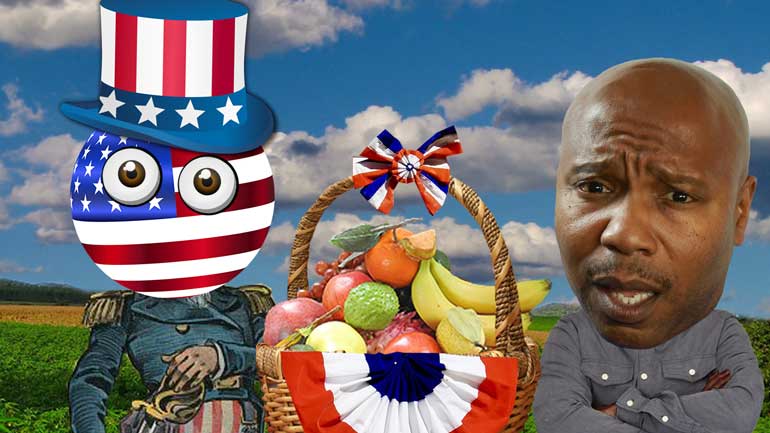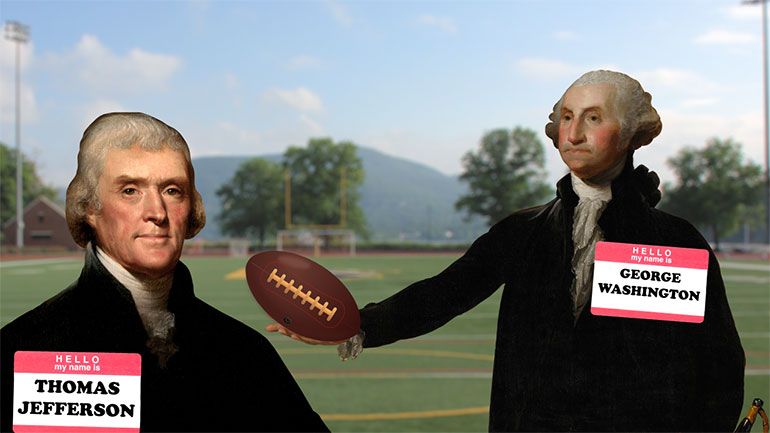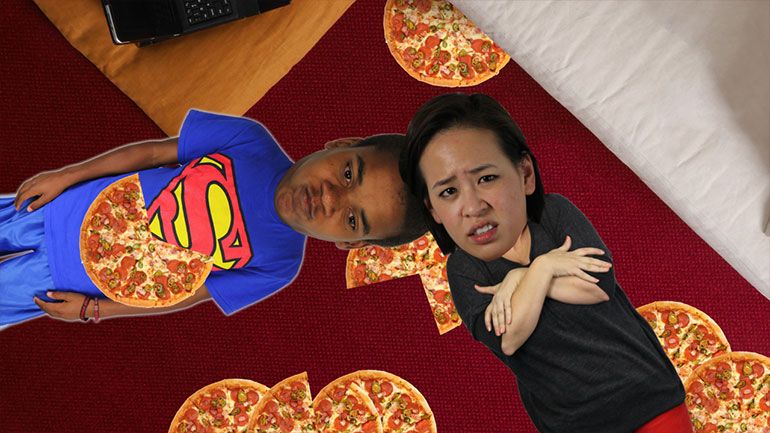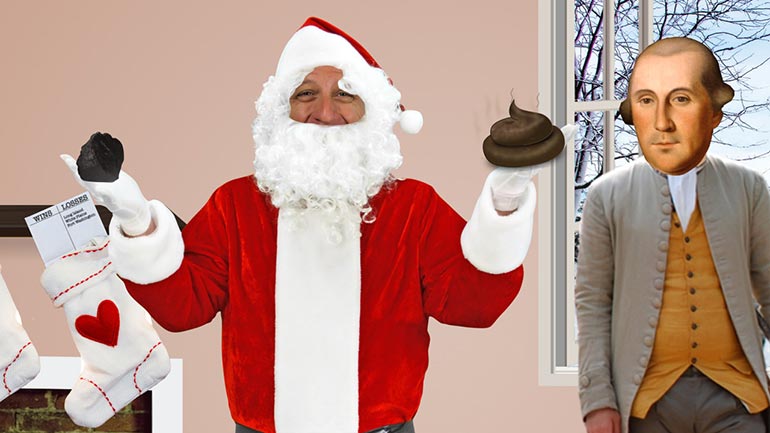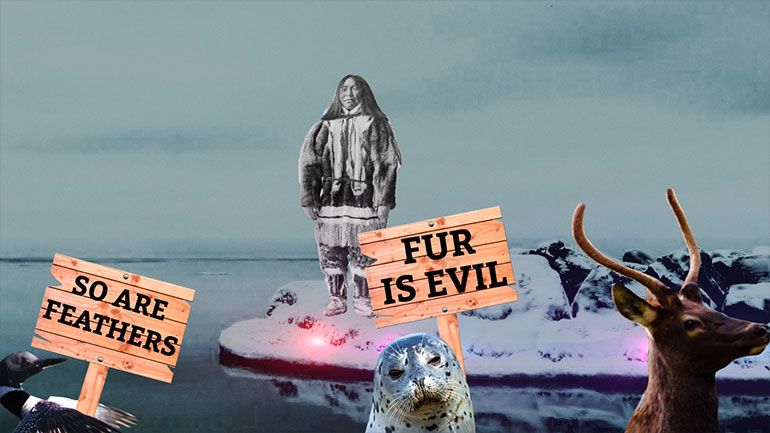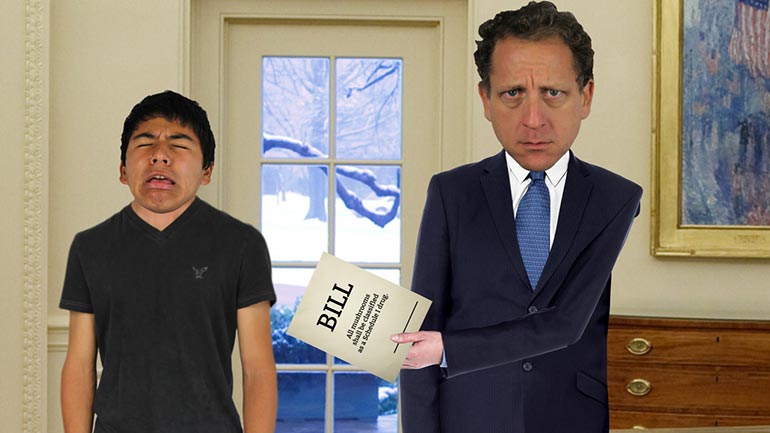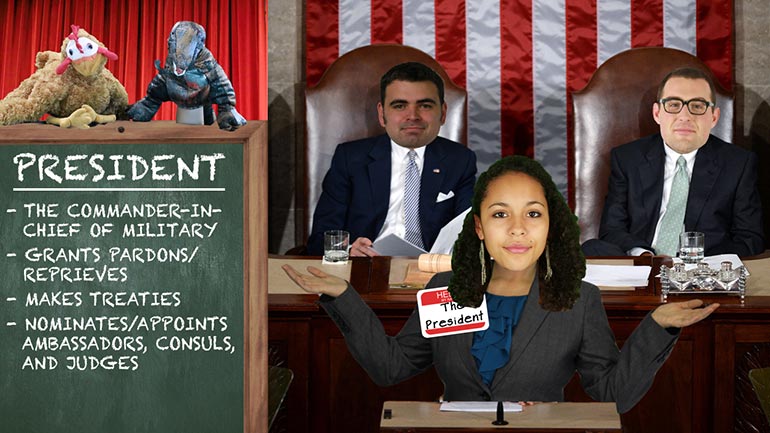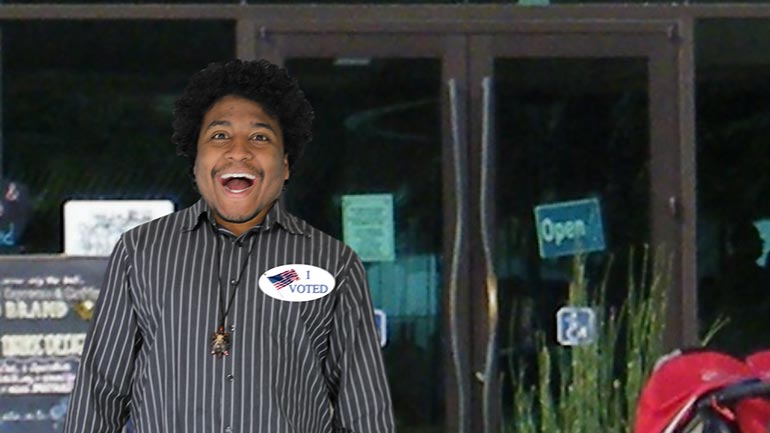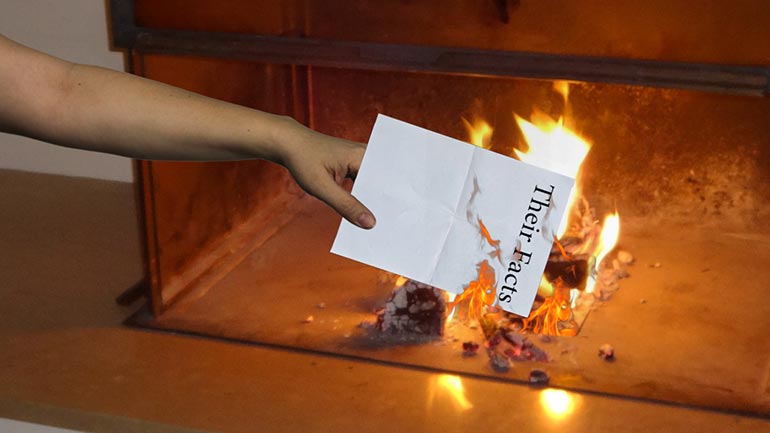ShmoopTube
Where Monty Python meets your 10th grade teacher.
Search Thousands of Shmoop Videos
Social Studies Videos 51 videos
Time periods are super important. What if The Lord of the Rings had taken place in the future? Frodo would have just used his rocket boots to...
Plantations may have made their owners rich, but it was at the expense of the slaves that worked there. They were treated terribly. Rickety houses,...
Okay, get this. During the Civil War people actually used to march into battle with bands that blasted heroic music in order to inspire the troops...
Social Studies 5: Reporting 101 19 Views
Share It!
Description:
Today we'll learn about the five W's and how and how they're important to reporters. Yes, you read that sentence correctly.
Transcript
- 00:04
[Coop and Dino singing]
- 00:13
Anyone who’s ever been in trouble with their parents before should be familiar with the 5Ws and 1H. [Parents lecturing young boy]
- 00:19
Y'know…
- 00:19
"Who ate the entire box of chocolate chip cookies?
- 00:23
What were you thinking when you jumped into the pool from the roof? [Mom shouting at boy in hospital bed]
Full Transcript
- 00:26
Where did you put the remote??
- 00:30
When did I tell you to be home from school? [Boy walks in through front door and Mom shouts]
- 00:32
Why would you eat three tubs of ice cream in one sitting?
- 00:36
And how in the world did you get your head stuck in the railing?"
- 00:39
But the 5Ws and 1H aren't just good for parenting – they're Reporting 101.
- 00:44
Newspaper articles can be written to inform, persuade, or entertain – but our focus today
- 00:49
is on informational writing. [Coop discussing informational writing]
- 00:51
When a journalist is writing an article in order to educate and inform the reader, they're
- 00:55
writing “informational writing.”
- 00:57
Which means that they’ll always start with the same six questions.
- 01:00
First comes who, as in “Who is the story about?” [Man giving speech outside of Congress]
- 01:03
Is it a politician? A citizen? Your kooky aunt Mabel?
- 01:08
Informational articles are often about people and their actions, so knowing who we're talking
- 01:11
about is pretty important. Next comes what. “What happened in this
- 01:16
story?”
- 01:17
Did the politician pass a bill? Did a citizen find something weird in their hamburger? Did [Politician holding a bill and people raise their arms]
- 01:23
Aunt Mabel add a tenth cat to her collection?
- 01:26
If a story was a sandwich, “what” would be the meat. You gotta know what happened.
- 01:31
Next comes where. This one asks where the story takes place.
- 01:35
Where did the politican's bill get passed? Where did they buy the hamburger with a fake
- 01:40
eyeball in it? Where the heck is Mabel going to find space for that darn cat? [Cat sat on a bed and Mabel wonders where to find space]
- 01:45
Where is super important. The reader needs to know if the sinkhole is on the other side
- 01:49
of the world… or in their backyard. After that comes when. [Man falls into sink hole]
- 01:53
Whether you're trying to figure out when the bill comes into effect, when the fake eyeball
- 01:57
could have found its way into the hamburger, or when Mabel found time to buy a new cat [Mabel driving a car]
- 02:01
between taking care of the nine other cats, people need to know if the story is recent
- 02:05
or not.
- 02:05
Who cares if the lottery happened a year ago? We want to know about the one that’s about
- 02:10
to happen and is about to make us billionaires! Next up is “why?” This one is super important,
- 02:16
because it's when the writer explains why something is important to the reader.
- 02:20
Why did the bill get passed and why does it affect everyone? Why did the fake eyeball [A hamburger and a plate of fake eyeballs]
- 02:25
end up there? And why does Mabel need all of those cats, anyway?
- 02:29
So those are our five Ws, which leaves us with our 1H, “How.”
- 02:33
“How” is kind of a catch-all question that allows the writer to cover any other [Coop discussing how]
- 02:37
important details they might have missed.
- 02:39
How did any of this happen? How might it happen to you? How in the world isn't there a law
- 02:44
preventing women named Mabel from owning more than a set number of cats? [Mabel holding a cat and politician holds up a bill]
- 02:49
How allows the reader to go into detail and explain things further, and we all love details…
- 02:54
…almost as much as Mabel loves cats.
- 02:56
So there you have it – the 5Ws and 1H to reporting!
- 02:59
Now if you'll excuse us, we have some kitty litter to change. What a clawful situation. [Kitty litter in a bathroom and Mabel walks in]
Related Videos
Check out the best bias video ever made, courtesy of the most awesome and amazing educational website in existence.
No, this isn't a terrible new mint-peach bubble gum flavor...though it does tend to leave a bad taste in people's mouths.
Those settlers in Jamestown really should have settled down with all that land-stealing. Tobacco's bad for you anyway.
Being born out of multiple wars doesn't quite seem to fit the peaceful, polite Canadians we know and love today...oh wait, they were called The Bea...
Not every cartoon is meant to entertain small children while their mother gets some "Mommy time." There are also political cartoons, which are mean...
